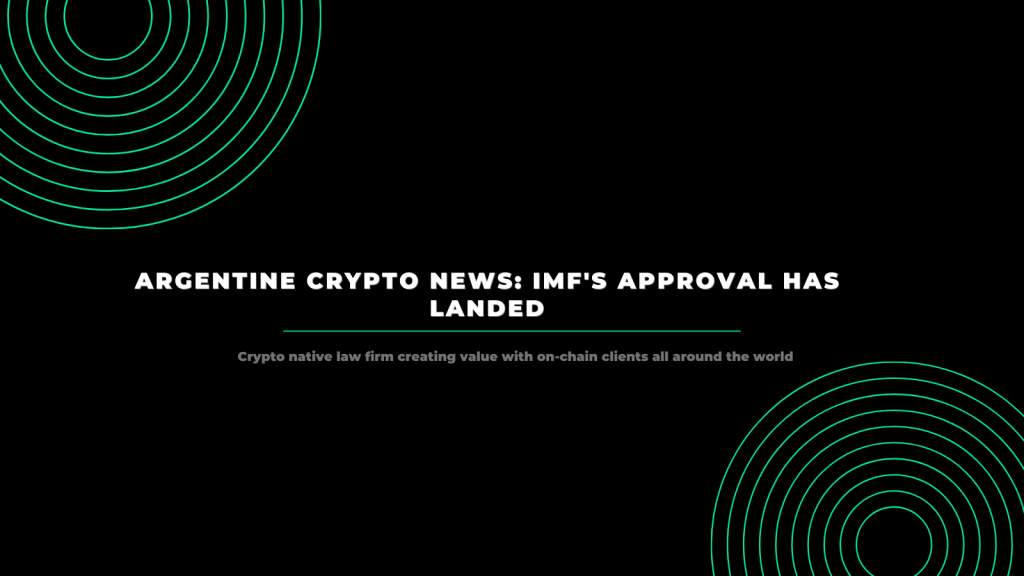In our last Argentine News, we have covered the Argentine Government’s application for Extended Fund Facility and its current and possible impactions on crypto companies operating in the Argentine regional market. And now here we are to provide more on the issue following the IMF’s approval.

On March 25, 2022, International Monetary Fund (“IMF”) has carried out its Executive Board, and in the end, it has approved Argentina’s proposal on the deferral of its debts and an additional fund for its recovery from high inflation and financial crisis. (1)
With the IMF’s approval, various question marks have emerged regarding the future of crypto-companies operating in the market. This situation maximizes the level of uncertainty in the country both for citizens, residents, and crypto companies.
What is the Deal?
There are basically two expressions regarding the position of crypto in the approved Deal, and they are located under the titles of and “strengthening financial resilience” (2) and “financial inclusion”. (3)
First, parallel to Argentina’s Letter of Intent regarding strengthening financial resilience is stated that the government prioritizes discouraging crypto with a view to preventing money laundering, informality, disintermediation. Although here the limit to discourage crypto is constructed within the scope of prevention of money laundering and terrorism funding, the following provision in financial inclusion appears to point out legislations regulating crypto development and penetration in general.
In the financial inclusion part, the exact expression is preferred as follows “Steps are also being taken to discourage the use of crypto-currencies and prevent money laundering, informality, and disintermediation.” This provision holds a great potential to be a ground for future restrictions, formalities regarding time and money, and downfalls regarding the crypto business. In a sense, discouraging crypto is directly linked to preventing money laundering in the Deal. However, the use of “and” here does not necessarily require the government to discourage crypto only limited to certain areas like anti-money laundering measures. In contrast, the provision is articulated in a way to provide a massive room for the legislator to regulate the crypto further.
On the other hand, as one of the crypto operators in Argentina, Rodolfo Andragnes, the co-founder of NGO Bitcoin Argentina, has emphasized, it can be said that prevention of money laundering does not necessarily require the elimination of crypto but rather the crypto regulation and anti-money laundering measures can and need to be dealt with separately. (4)
What is next?
At this point, the actions that will be taken against crypto asset provider companies are not clear, and thus an immense uncertainty hangs in Argentina’s air. However, it should be emphasized that now the government has signaled an explicit intent towards crypto after its Letter of Intent. And finally, after IMF’s approval, Argentina is in a way obliged to regulate crypto further in order to comply with approved the Deal.
- IMF Country Report, No. 22/92, March 25, 2022, accessed via https://www.imf.org/en/Publications/CR/Issues/2022/03/25/Argentina-Staff-Report-for-2022-Article-IV-Consultation-and-request-for-an-Extended-515742 on March 29, 2022.
- IMF Country Report, No. 22/92, p. 19
- IMF Country Report, No. 22/92, p. 25
- Kaaru, S.: IMF to bail out Argentina, but only if it discourages digital currency, March 25, 2022, accessed via https://coingeek.com/imf-to-bail-out-argentina-but-only-if-it-discourages-digital-currency-use/ on March 29, 2022.